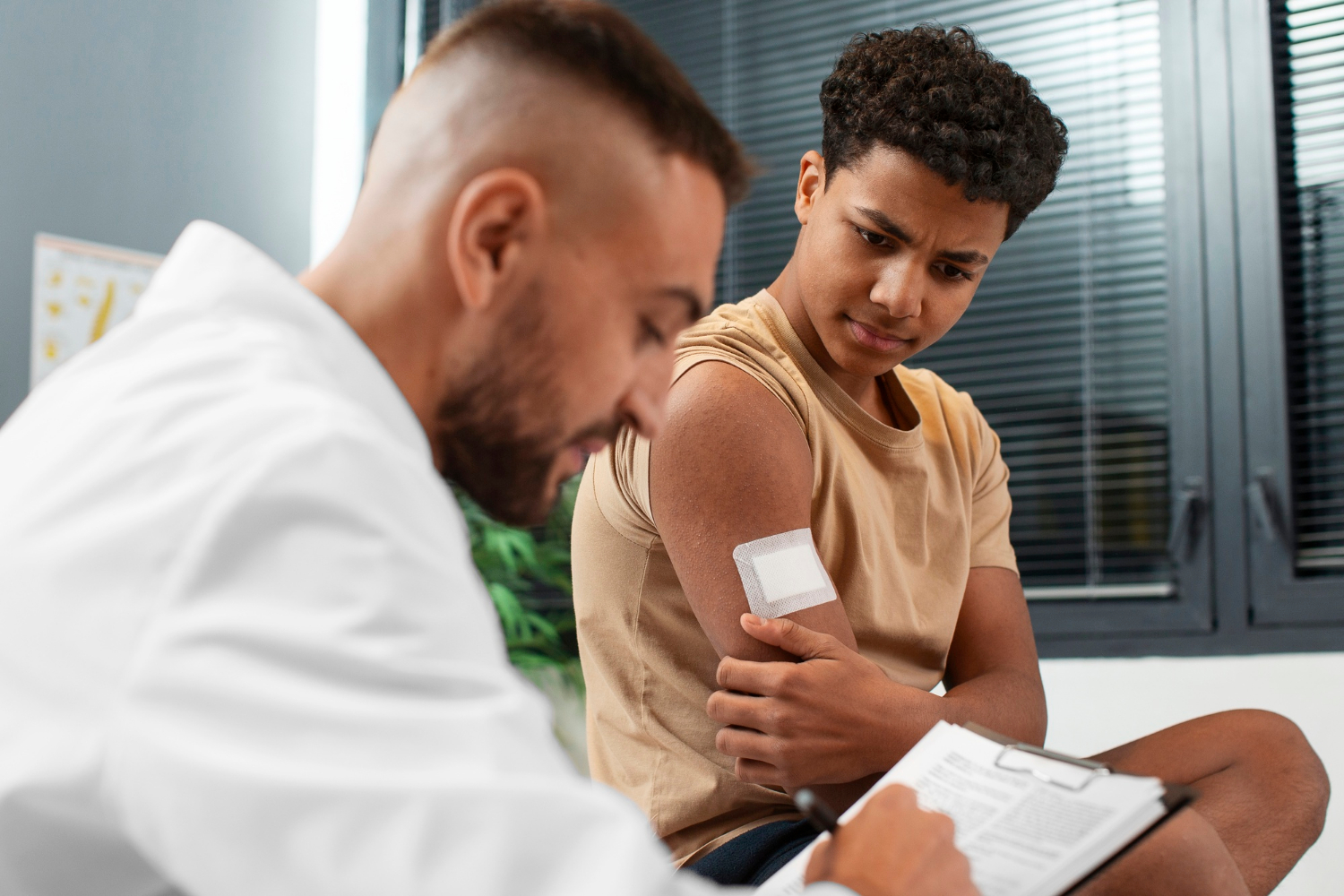India has taken a major step forward in the battle against dengue with the successful 70% enrolment of participants for the Phase III clinical trial of its indigenous vaccine, DengiAll. This landmark development marks a turning point in dengue prevention, offering a glimmer of hope for a nation that continues to witness a sharp rise in dengue cases every year.
As per the recent update by Minister of State for Health, Prataprao Jadhav, the trial is being conducted under the leadership of the Indian Council of Medical Research (ICMR). This is a randomised, double-blind, placebo-controlled, multicentre clinical trial being carried out across 20 centres in India. The primary aim of this trial is to evaluate the efficacy, immunogenicity, and safety of the single-dose tetravalent dengue vaccine – DengiAll.
India’s Urgent Need for a Dengue Vaccine
Dengue fever has been a persistent threat to public health in India. According to the National Centre for Disease Control (NCDC), more than 5.7 lakh laboratory-confirmed dengue cases were reported in 2024 alone. This alarming figure indicates how urgently a preventive solution like a vaccine is needed.
Dengue is caused by four closely related viruses — DENV-1, DENV-2, DENV-3, and DENV-4 — all of which are known to circulate in India. Despite years of efforts, there has been no specific antiviral treatment or licensed vaccine available for dengue in the country. Current treatment is only supportive, focusing on managing symptoms rather than preventing infection.
Inside the DengiAll Clinical Trial
The Phase III trial of DengiAll is being carried out at some of India’s most reputed medical institutions including:
-
JSS Medical College and Hospital, Mysuru (Karnataka)
-
Bangalore Medical College and Research Institute (Karnataka)
-
All India Institute of Medical Sciences, Bibinagar (Telangana)
The trial follows a rigorous process, adhering to global clinical research standards. Each trial site is working with an approximate budget of ₹1.3 to ₹1.5 crore, ensuring high-quality research practices and participant care.
This one-shot vaccine, if proven successful, can revolutionize dengue prevention in India and beyond. The completion of 70% enrolment shows strong public participation and trust in science — a critical component in any vaccine development process.
Government Monitoring and Support
The Union Health Ministry, Director General of Health Services, and National Centre for Vector Borne Disease Control (NCVBDC) are working closely to monitor dengue outbreaks and support states in implementing preventive measures. These bodies provide continuous technical guidance, outbreak assessments, and early warnings to keep the disease in check.
In addition, the Government of India has developed national guidelines on dengue treatment and management. These guidelines are created in consultation with medical experts and are being shared with all states and union territories for effective implementation.
Why DengiAll is a Game-Changer
The DengiAll vaccine has several features that make it a game-changer in India’s dengue landscape:
-
Single-dose administration: Easier distribution and better compliance.
-
Tetravalent formula: Effective against all four dengue virus serotypes.
-
Live attenuated and recombinant design: Promising safety and efficacy based on earlier trial phases.
If the current Phase III trial proves successful, India could become a global leader in dengue vaccine development, reducing both domestic and international disease burdens.
Strengthening the Indian Pharma Ecosystem
The advancement of the DengiAll vaccine is not just a scientific achievement — it also reflects the strength of India’s pharmaceutical manufacturing and clinical research infrastructure. This progress is supported by India’s expanding ecosystem of pharma contract manufacturing companies, which enable large-scale production of complex formulations, including vaccines.
Furthermore, India’s growing focus on exclusive marketing zones and distribution models has paved the way for more innovative business opportunities. Companies involved in vaccine manufacturing and distribution may also benefit from partnering with a monopoly medicine company in India, giving them the market leverage and support needed to scale effectively.
Conclusion
The 70% participant enrolment milestone in the Phase III DengiAll vaccine trial is a testament to India’s proactive healthcare approach and growing clinical research capabilities. With dengue cases continuing to rise, the urgency for a preventive vaccine has never been more critical. If the final phase proves successful, India could soon be home to a globally accepted, one-shot dengue vaccine, providing relief to millions and significantly reducing the dengue disease burden.
As the government continues to monitor outbreaks and implement preventive measures, collaborative efforts between the public sector, private pharmaceutical companies, and research institutions remain key. The success of DengiAll could very well be a defining moment not just in dengue prevention, but in showcasing India’s strength in healthcare innovation.

